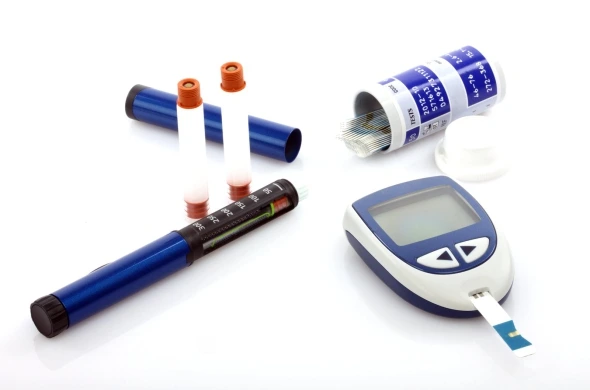Diabetes is more than a number on a blood sugar meter, it’s a condition that affects how your body turns food into energy. But here’s what everyone should know: a diabetes diagnosis doesn’t mean your life is over. In fact, with the right knowledge and tools, it can be the start of a healthier, more intentional way of living.
Whether you’re newly diagnosed, supporting a loved one, or just curious, let’s walk through Diabetes Explained, clearly, compassionately, and without the jargon.
What Is Diabetes, Really?
Think of your body like a car. For it to run, it needs fuel, glucose (sugar) from the food you eat. Insulin, a hormone made by your pancreas, acts like a key that lets glucose into your cells to be used as energy.
With diabetes, this system doesn’t work as it should:
- Either your body doesn’t make insulin (Type 1)
- Or it doesn’t use insulin well (Type 2)
The result? Too much sugar stays in your blood, which over time can lead to serious health issues. But, and this is important, it can be managed.
Not All Diabetes Is the Same
Type 1 Diabetes:
- An autoimmune condition where the body attacks insulin producing cells.
- Often diagnosed in children and young adults.
- Requires daily insulin (via injections or a pump).
Type 2 Diabetes:
- The most common type, often related to lifestyle factors.
- The body becomes resistant to insulin or doesn’t make enough.
- Can sometimes be managed with diet, exercise, and oral medications.
There’s also gestational diabetes, which occurs during pregnancy and usually resolves after birth, though it requires careful monitoring.
Let’s Clear Up Some Myths
- Myth: Diabetes is caused by eating too much sugar.
Fact: It’s more complex. Genetics, lifestyle, and other health factors play major roles. - Myth: People with diabetes can’t eat carbs or sweets.
Fact: They can! It’s about balance, portion control, and making smart choices. - Myth: Diabetes isn’t that serious.
Fact: Unmanaged diabetes can lead to complications—but with good care, risks are greatly reduced.
How Diabetes Is Managed: Your Daily Toolkit
Living well with diabetes is about consistency, not perfection. Small, sustainable steps make a big difference.
1. Monitor Your Blood Sugar
Checking your levels helps you understand how food, activity, stress, and medication affect your body. It’s your daily feedback loop.
2. Nourish Your Body Mindfully
You don’t need a “diabetic diet”, just balanced, nutritious meals:
- Focus on whole foods: veggies, lean proteins, whole grains, healthy fats.
- Carbs aren’t the enemy, just choose complex ones (like oats or quinoa) and watch portions.
- You can still enjoy treats, in moderation and with planning.
3. Move Your Body
Physical activity helps your body use insulin better. You don’t need intense workouts, walking, dancing, gardening, or yoga all count.
4. Take Medications as Prescribed
Some people need insulin; others use oral meds. Work with your doctor to find what’s right for you, and stick with it.
5. Prioritize Emotional Health
Diabetes can be emotionally draining. It’s okay to feel frustrated or overwhelmed. Talk about it, with friends, family, a therapist, or a support group.
You’re Not Alone: Build Your Support Team
- Healthcare providers: Your doctor, endocrinologist, dietitian, and diabetes educator.
- Community: Support groups (online or local) where people truly “get it.”
- Loved ones: Teach them how they can support you, whether it’s joining you on a walk or learning to recognize signs of low blood sugar.
A Message of Hope
A diabetes diagnosis might feel overwhelming, but it’s also an opportunity to tune into your body and prioritize your health in new ways. Many people with diabetes live long, vibrant, and fulfilling lives, and you can too.
You are in the driver’s seat. With knowledge, support, and daily care, you can thrive, not just survive.
If you have questions or concerns about diabetes, always consult a healthcare professional for personalized guidance. You’ve got this.
Disclaimer: This content is for educational purposes only and is not a substitute for professional medical advice, diagnosis, or treatment. Always seek the advice of your physician or qualified health provider with any questions you may have.
